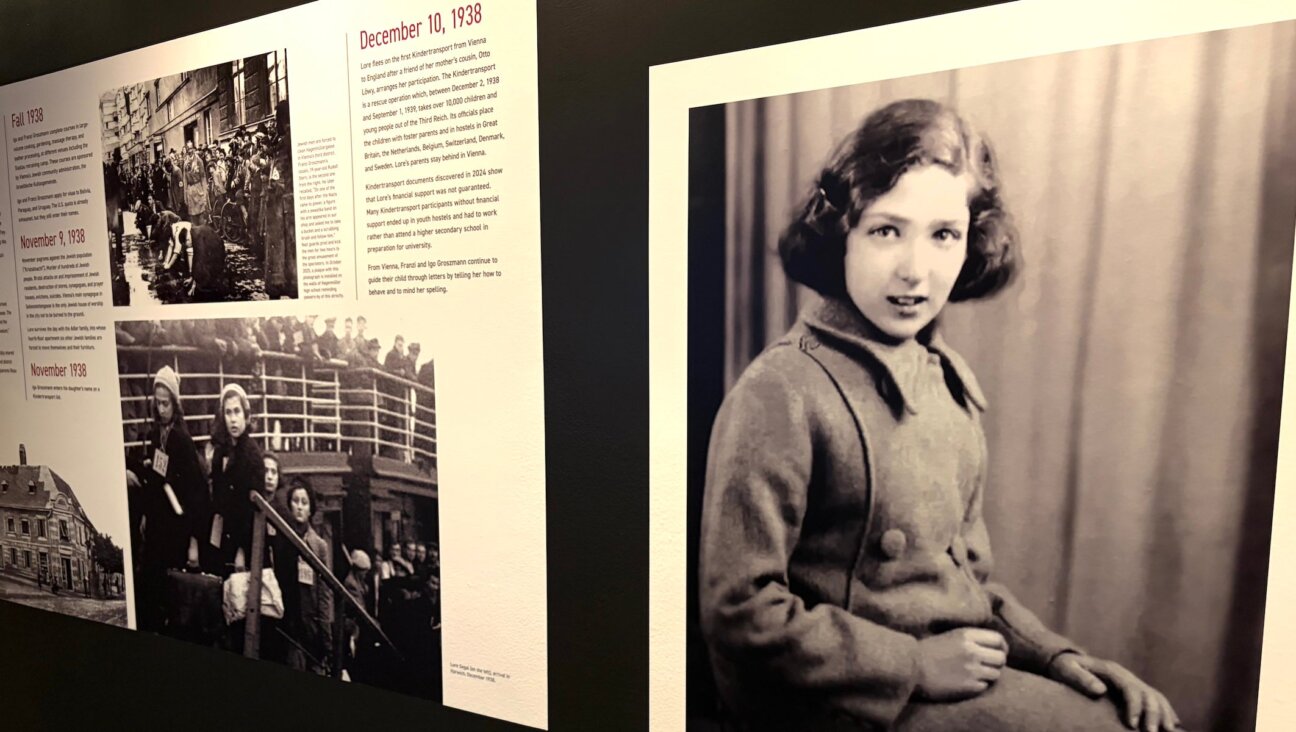Being a Jew Among the Genteel and Gentile
Matters of Honor
By Louis Begley
Knopf, 320 pages, $24.95.
The ordeal of civility, as defined by sociologist John Murray Cuddihy in his 1974 book, is “the ritually unconsummated courtship of Gentile and Jew.” This phenomenon is a recurrent theme throughout the fiction of Louis Begley. Even more than in his first novel — “Wartime Lies” (1991), the story of a Jewish boy who survives the Nazi occupation of Poland by passing as Catholic — Begley’s eighth novel, “Matters of Honor,” is shaped mainly by “all the Jewism” that one of its characters desperately seeks to escape.
Young Henryk Weiss and his mother made it through the Holocaust by hiding in a gentile’s house in Krakow. At the beginning of the novel, he is a red-haired freshman at Harvard who calls himself Henry White. Although he confides his background to his two new roommates, Henry insists that “inside I feel no more Jewish than a smoked ham.” It is hard to find a minyan at Harvard in the early 1950s, and antisemitism is still a genteel affectation, but sharing their dormitory suite with a Jew incites curiosity rather than hostility in Archie Palmer and Sam Standish. Archie is the hedonist son of a colonel, and Sam is the scion of Berkshire bluebloods. A mismatched trio, Henry, Archie and Sam become fast friends.
“Matters of Honor” is Sam’s narrative, but it is largely Henry’s story. Sam, whose only contact with Jews prior to Harvard has been with his dentist, recounts 50 years of his friendship with Henry. He is a reticent narrator, less inclined to talk about himself than about his friend.
He is a reticent narrator, less inclined to talk about himself than about Henry. And it is Henry’s “Jewism” that fascinates him, although he concedes that “everything concerning Jews — a subject to which I had devoted little before — was too complicated, and Henry’s responses were unpredictable.”
Henry’s responses to Margot Hornung, however, are quite predictable; from the moment that he, an insecure stranger standing at a dormitory window, glimpses the Radcliffe beauty blowing brazen kisses to him, he is smitten. The only daughter of a fabulously wealthy banker, who resides in Manhattan on Park Avenue, Margot is the kind of invisible Jew that Henry, “a Jewish refugee from Poland with a Brooklyn address and a Brooklyn high school diploma,” aspires to be. (“We’re not self-hating anti-Semitic Jews,” she tells Sam. “We’re only snobs.”) But for all Henry’s talent and tenacity, his background creates barriers to clubs, houses, fellowships and jobs. And despite his extraordinary worldly success, Margot remains unattainable. Attempting to become “an honorary Aryan” proves neither Aryan nor honorable.
“Matters of Honor” offers the common reader a privileged peek at lives of glamour, wealth and power. Begley, a Polish refugee and Harvard graduate who served for decades as senior partner at a prestigious international law firm, knows this world like the back of his handkerchief. He has a fine eye for the difference between a tuxedo and a dinner jacket and, more importantly, between those who know the difference and those who don’t. Yet one can sip only so much La Tâche ’62 and Krug ’75 before the palate starts to sour. When, after playing squash at the Harvard Club, Sam is told by the hall porter that the president has been shot, he exclaims: “The president? President Pusey?” Begley concludes the paragraph with a reminder of the larger world that lurks beyond the Ivy League: “No, he answered, the president of the United States.”
Recounted linearly — with convenient allusions to Korea, Vietnam, Sadat and Begin, Mitterand, and George W. Bush to mark historical moments — the novel sacrifices dramatic tension to chronological sweep. Other Begley novels indulge us in the excruciating pleasure of delayed revelation, but, though “Matters of Honor” lays out the lives of its characters in the form of coy gossip, the novel trades in information more than illumination.
Part of the problem might be Sam. A foundling adopted by a disreputable branch of the Standish aristocracy, Sam is, like Charles Foster Kane, the beneficiary of an enigmatic but bountiful trust fund. The fund supports his almost daily sessions with a prominent psychiatrist and enables him to dine sumptuously and travel widely. But he never demands an accounting from its benign executor of just how rich he is or exactly who he is. The secret of his birth remains a mystery but also a source of shame to Sam, who, despite property in New York, France and Massachusetts, never feels at home. He becomes a celebrated novelist, adept at exposing others’ lives but restrained in what he says about himself, especially his sexuality. Like his clever Jewish friend, Henry, Sam remains detached from the splendid social realms that everyone else thinks he conquers.
“Matters of Honor” is an exquisitely nuanced lesson in the vanity of human wishes. Begley is incapable of writing a flaccid sentence, and he does more than a passing job of depicting the life of a passing Jew. But the greatest novels are more than a rich accumulation of pointed observations.
Steven G. Kellman is the author of “Redemption: The Life of Henry Roth” (W.W. Norton & Company, 2005) and recipient of the National Book Critics Circle’s 2007 Nona Balakian Citation for Excellence in Reviewing.
















